
A deck skirt can improve the form and function of a deck. Find out what it could cost to install deck skirting in your backyard with this guide.
Enjoy outdoor living at its finest—without worrying about inclement weather


When you think of a gazebo, you most likely picture a wooden octagonal structure used to add shade and privacy in a backyard space. However, gazebos can be more than just a lounge area—they can be designed to create an outdoor living space with multiple uses. From structural upgrades to decorating ideas to installing various light fixtures, we’re covering some of the best gazebo ideas to take backyard living to the next level.
Keep in mind that the more complex your dream gazebo is, the more difficult it will be to build. Hire a local gazebo builder to ensure your gazebo looks exactly how you envision it and is safely and properly installed.
Check out some different gazebo styles and structural enhancements to consider when adding one to your backyard. Remember, while pergolas and gazebos are sometimes used interchangeably, a gazebo is a freestanding structure that provides full sun coverage.
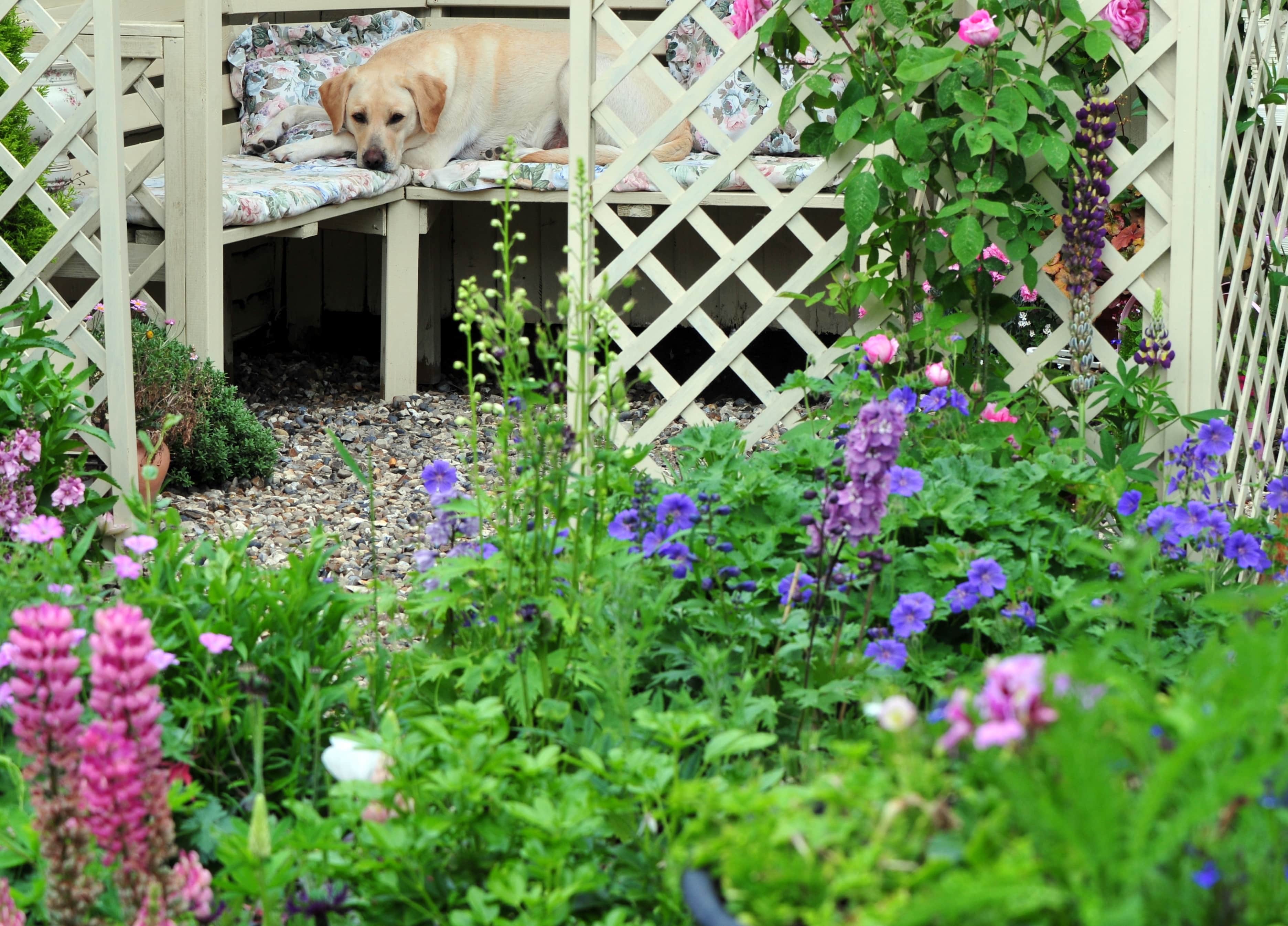
While gazebos often have open sides, you can shake up the traditional look by adding lattice to the sides or opting for full lattice work around the edges. This simple upgrade can make the space feel more private, taking you to a secluded oasis in your own backyard.

Create a pathway leading to the gazebo by connecting a bridge to the base of the structure. Whether you want to cover a water feature or uneven terrain, or if you simply like the look, a bridge can connect two separate spaces to better direct traffic in your yard.

This octagonal gazebo includes built-in bench seating around the sides of the structure and an incorporated wooden table in the center to encourage more al fresco meals with friends and family alike. The best part? You don’t have to worry about running out of seats if unexpected guests come over.
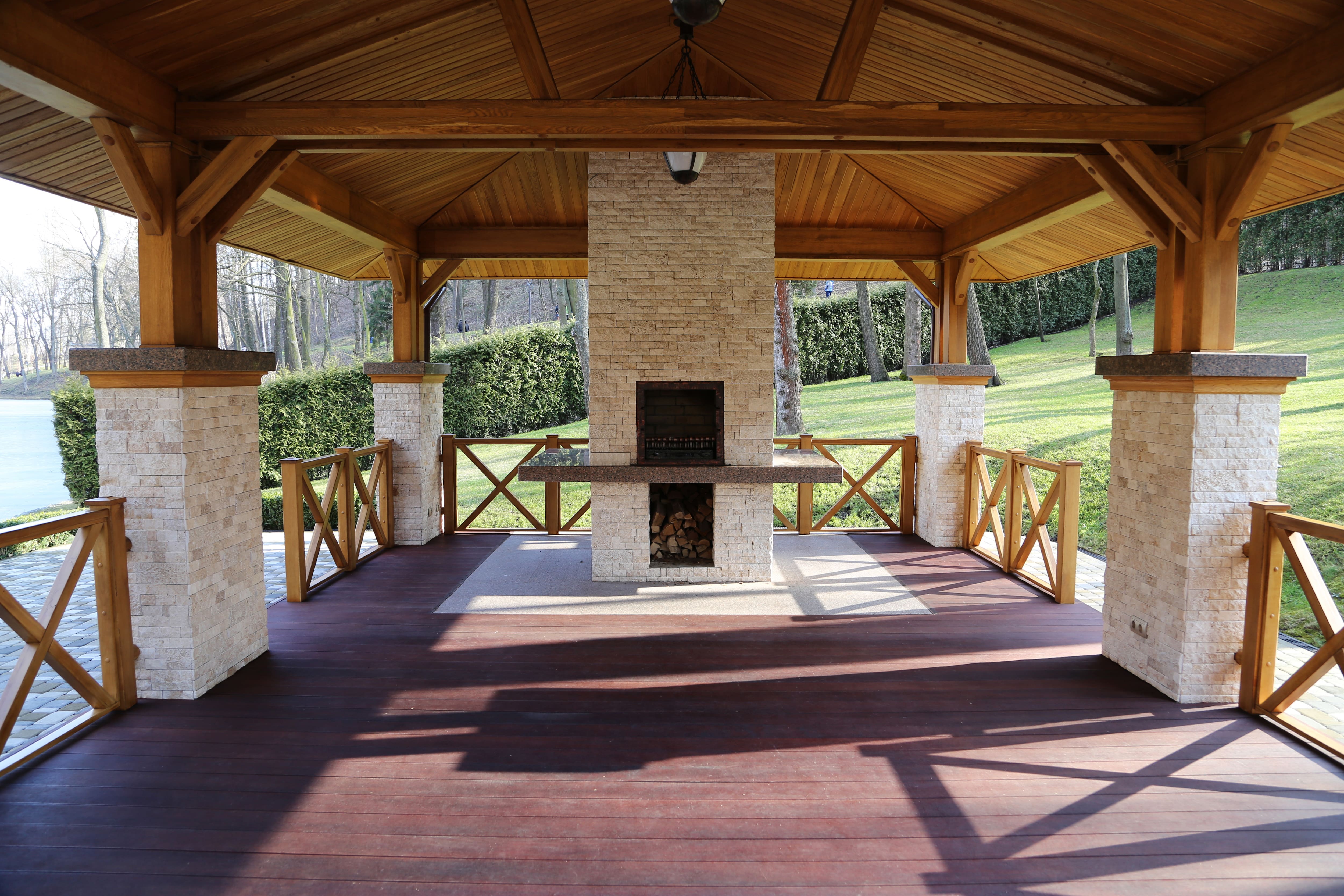
Include space for a fire pit in your gazebo design. This floor-to-ceiling wood-burning fireplace is a way to hardscape your yard that is functional, aesthetically pleasing, and can even add to the overall property value if you decide to sell your home down the line.
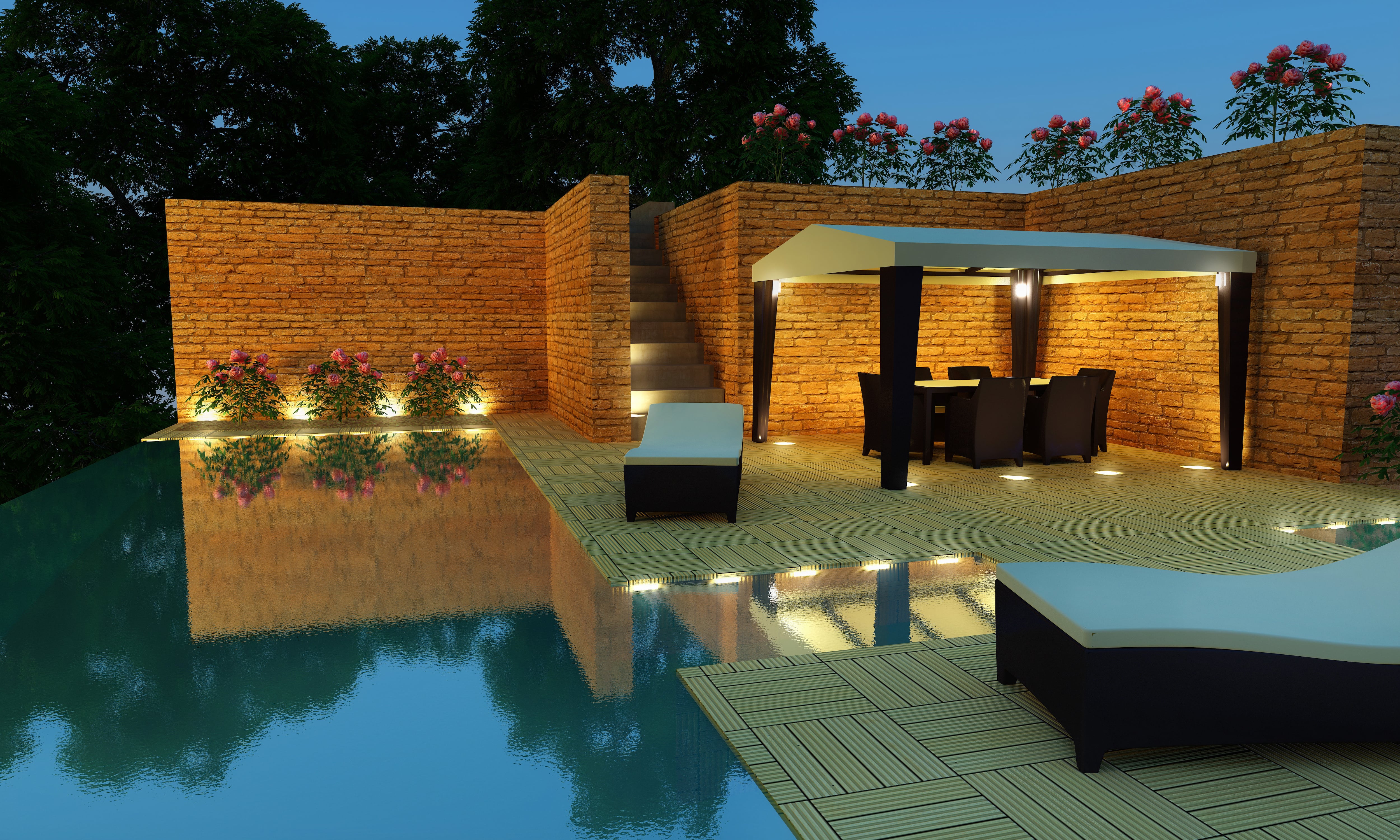
Shake up the design of the traditional gazebo by opting for a more modern aesthetic. Even though most people associate gazebos with a wooden octagonal shape, they can technically be any freestanding pavilion-like structures. This minimalist gazebo features four tapered posts, covered with a soft roof to highlight the architectural beauty and clean lines of the patio and swimming pool.

Relax in your backyard, while keeping the outdoor elements at bay. This fully enclosed gazebo with doors can act as an outdoor living room, an aesthetically pleasing shed, or even a yoga studio to fully immerse yourself in your yard—without the mosquito bites.
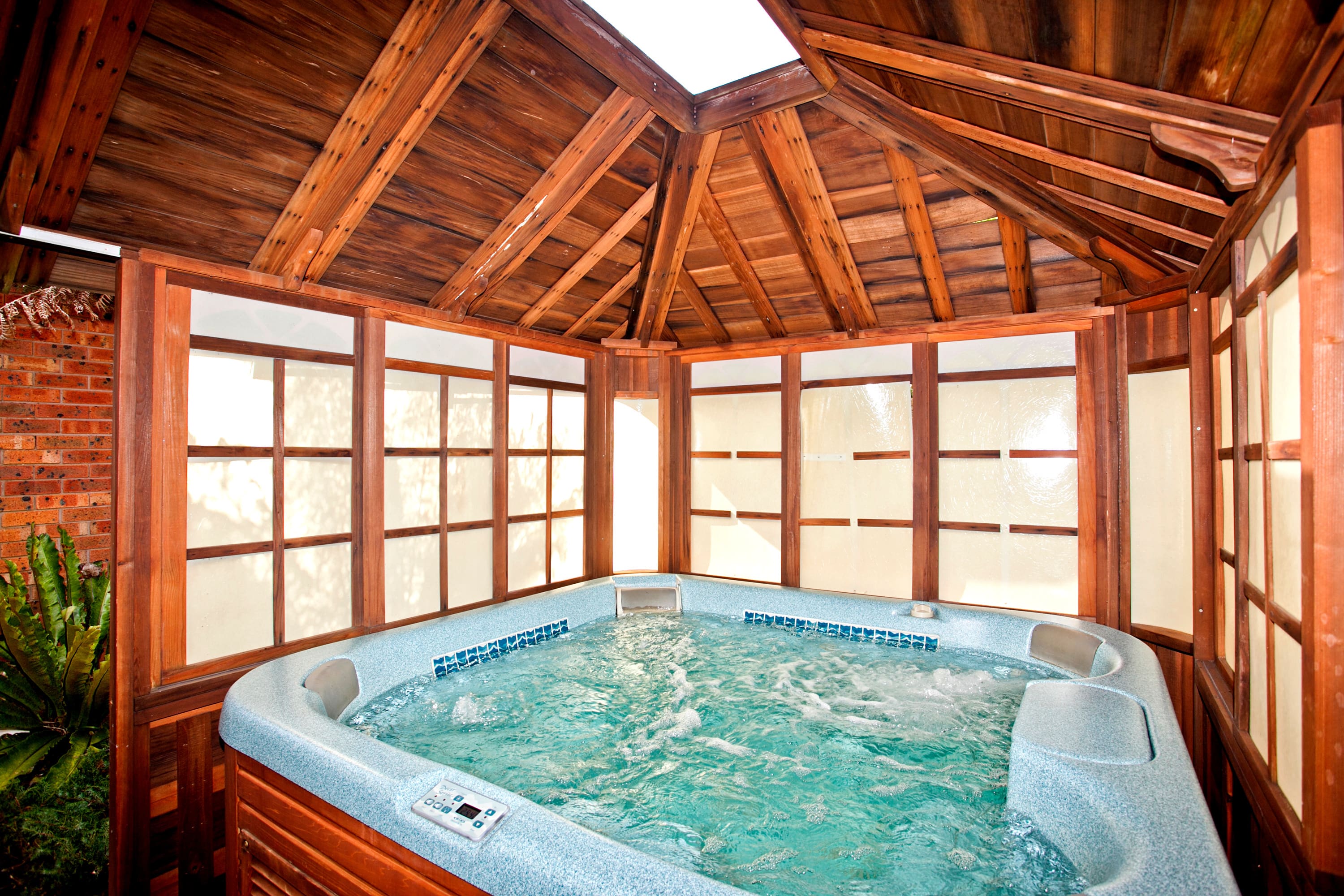
Placing a hot tub under a covered gazebo can encourage more use during any season. Keep snowfall away while soaking on a chilly winter night, or protect yourself from the sun’s rays in the summer for a comfortable spa-like experience.
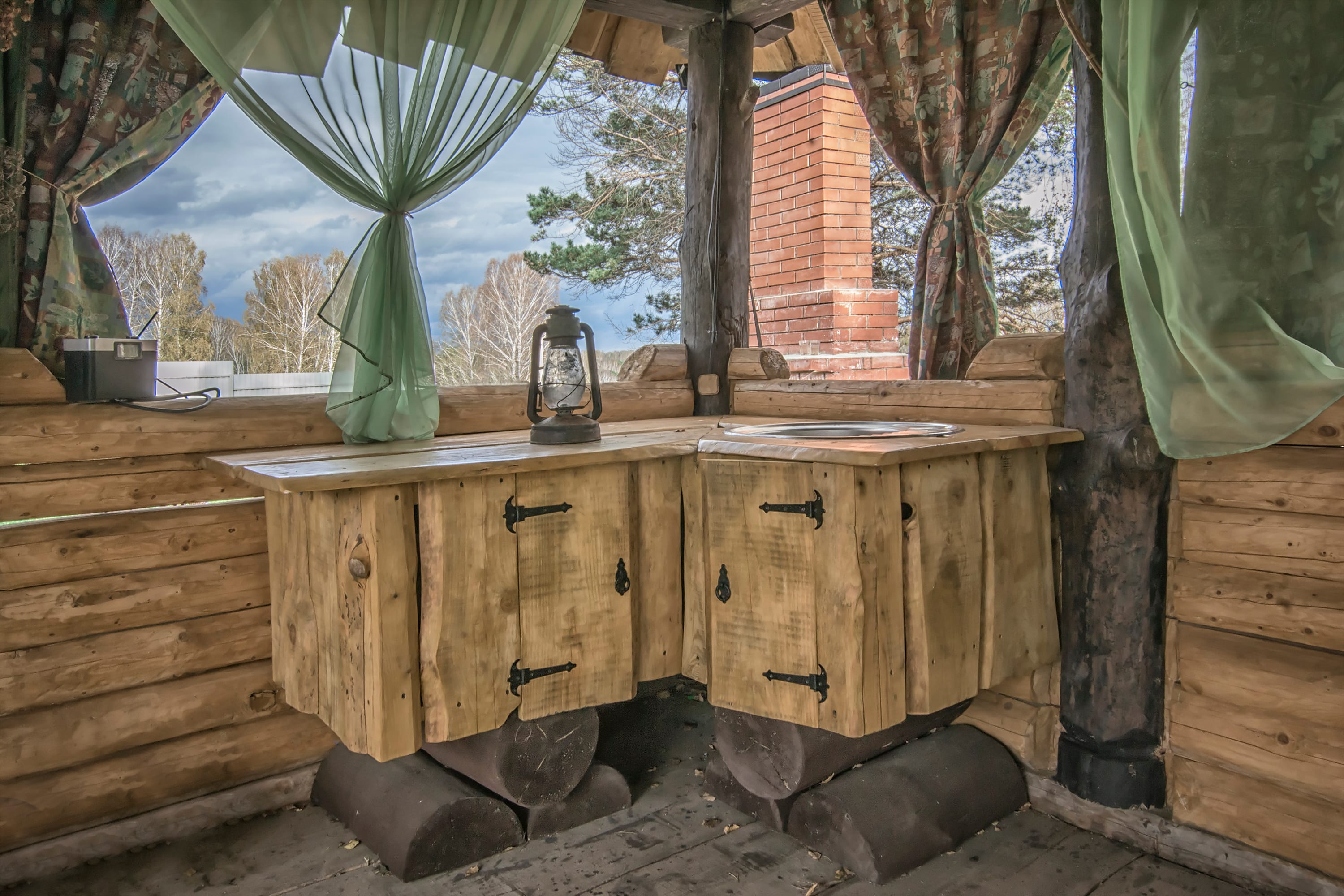
You can make your gazebo more than just a lounge area by equipping the space with cabinetry and appliances to create an outdoor kitchen space. By running electricity to the gazebo, you have a wider variety of uses, such as cooking, entertaining, or even installing a sound system.
Check out some ways to personalize your backyard gazebo to fit your design aesthetic.
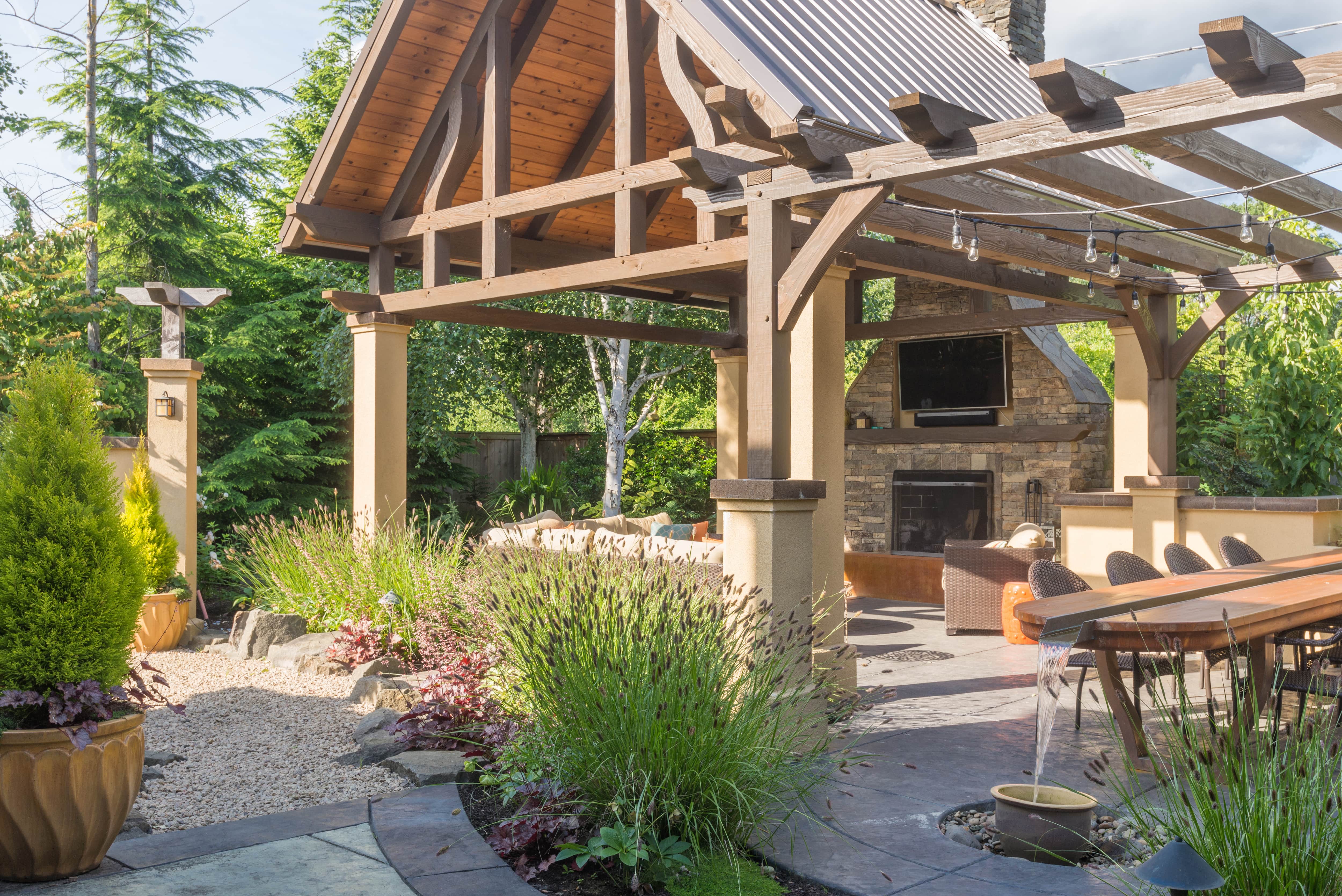
Include an outdoor TV in your gazebo design to be the go-to spot whether you’re watching the big game, having a movie night under the stars, or even indulging in your favorite Netflix series. You can either purchase an enclosure for an existing TV or find a unit specifically made to withstand the outdoor elements.

Bring the same feeling of lounging under a breezy cabana at your favorite seaside resort to the comfort of your backyard by hanging curtains around the sides of the gazebo. This can add shade and privacy, without committing to a permanent enclosure. The best part? These semi-transparent drapes allow you to still take in the views of your yard and provide protection on nights that are rainy or insect-heavy.

Include the gazebo in your seasonal decorating scheme to make it feel more like an extension of your home, rather than a separate space. Add fresh pine garland to the railings during the winter, line the stairs with pumpkins in fall, and add decorative throw pillows in the spring and summer to switch up the aesthetic throughout the year.

Accent the clean lines of the gazebo by highlighting the posts, railings, and beams. This unit features flower boxes installed on the railings, a wind chime hung from the ceiling joists, and even an outdoor thermometer on the posts. Adding decorative pieces from different spots on the gazebo provides a visual point of interest to admire from any spot you’re sitting in.
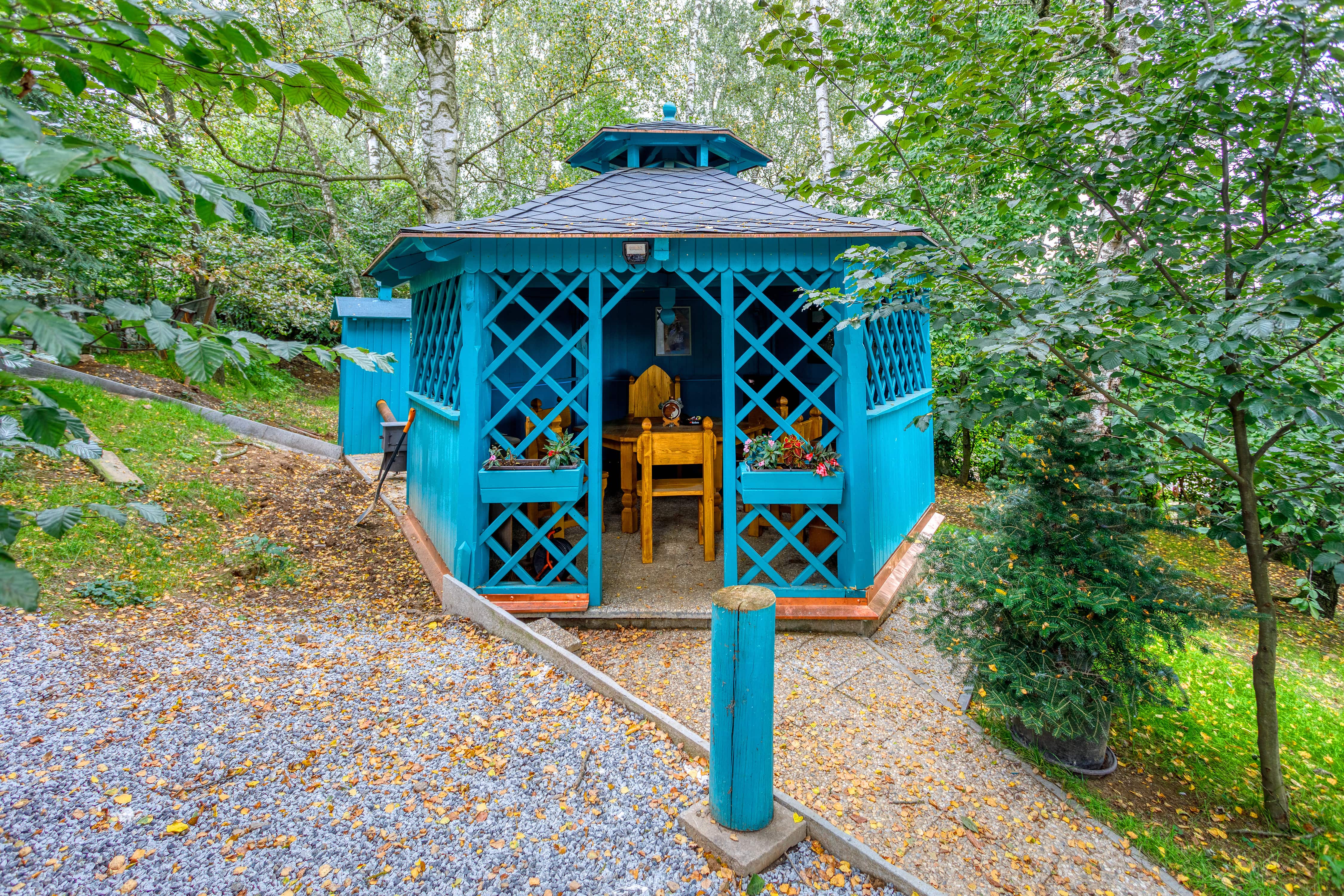
Give new life to an existing structure that needs an update by painting over the wood. You can go for a more muted shade, like beige or white. Or, opt for a bold tone, like this bright blue, to create a focal point amongst the greenery in the yard.
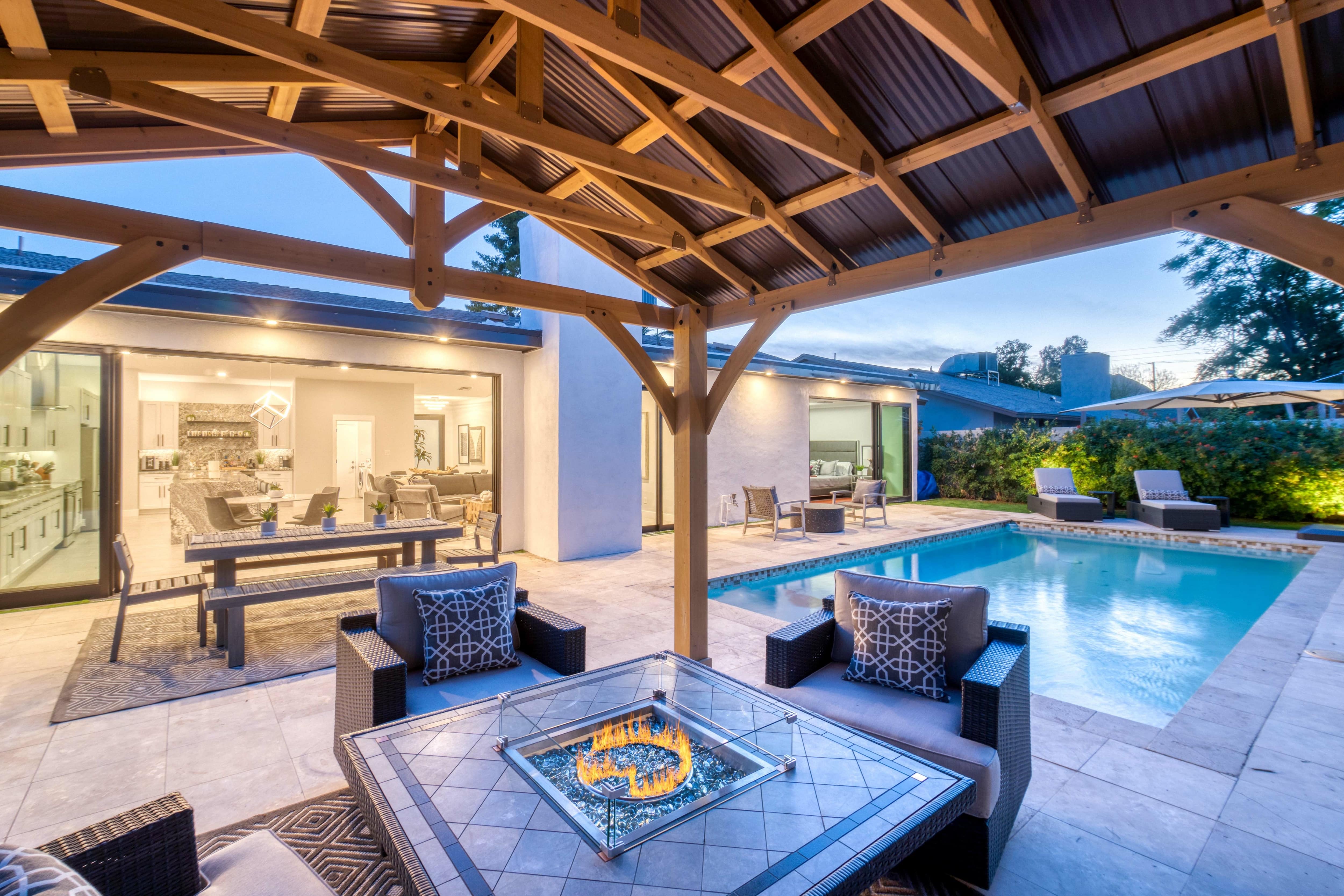
If your gazebo doesn’t include a built-in fireplace, consider adding a gas fire pit table (as long as there’s enough ventilation). With the simple press of a button, you can have a warm fire at your fingertips, perfect for setting the scene on a crisp fall evening to roast hot dogs and s’mores.

Don’t let a little rain spoil al fresco meal plans—keep an outdoor dining set in your gazebo to have a designated place to eat in your yard, no matter the weather.
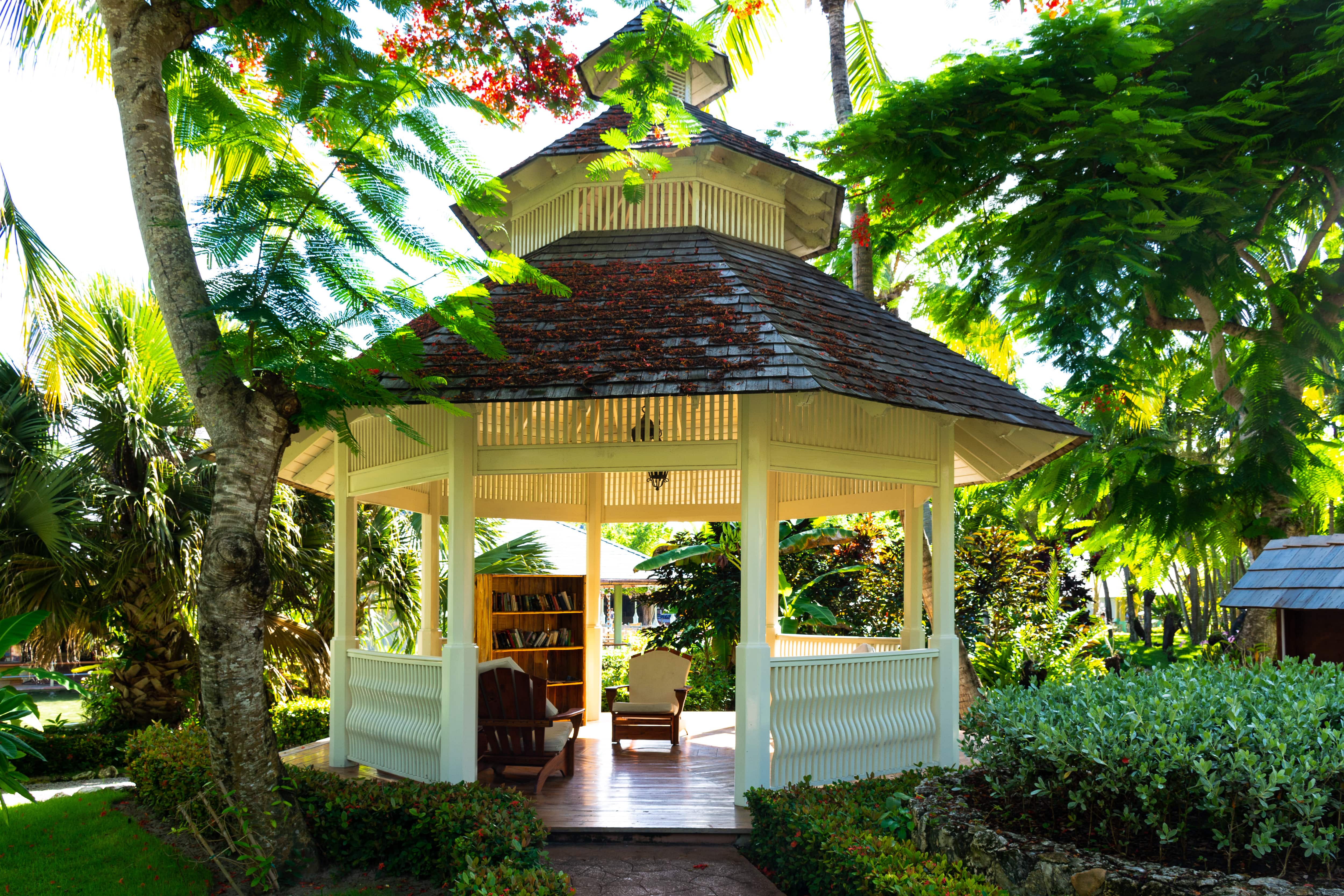
Who says a library has to be indoors? With the proper covering, you can store some of your favorite summer reads on a bookshelf in the gazebo. Equip the space with cozy patio chairs to leisurely pass the time while you’re indulging in your favorite novel.
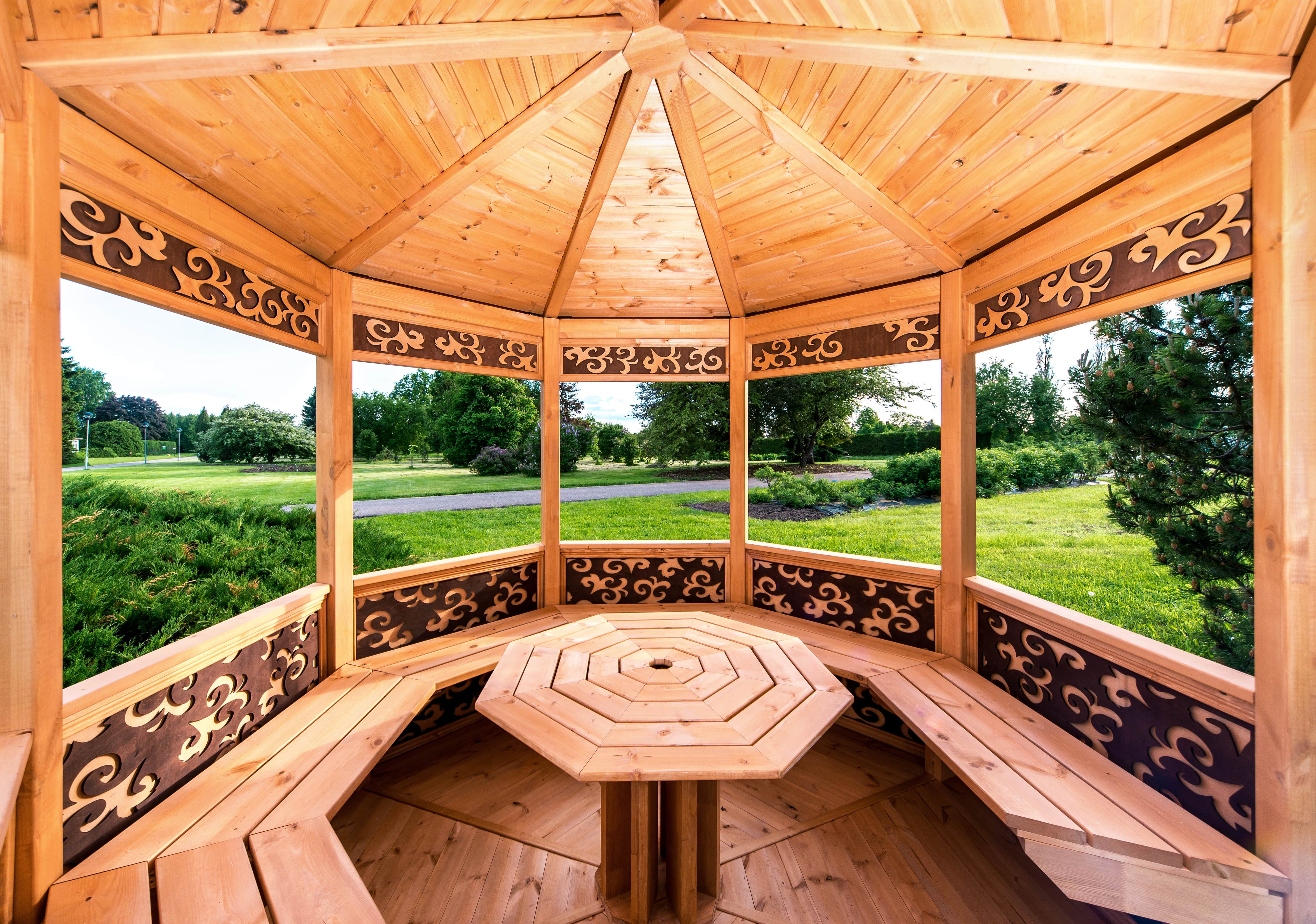
Wooden gazebos are known for their intricacies and craftsmanship. Consider the different areas you can add personal details to the structure to make it your own. This octagonal gazebo features a dark wood overlay with a soft pattern along the trim and the sides of the unit to add visual intrigue and customization.
Gardens and gazebos share a symbiotic relationship—here are some different ways to incorporate plants into your backyard landscaping design.
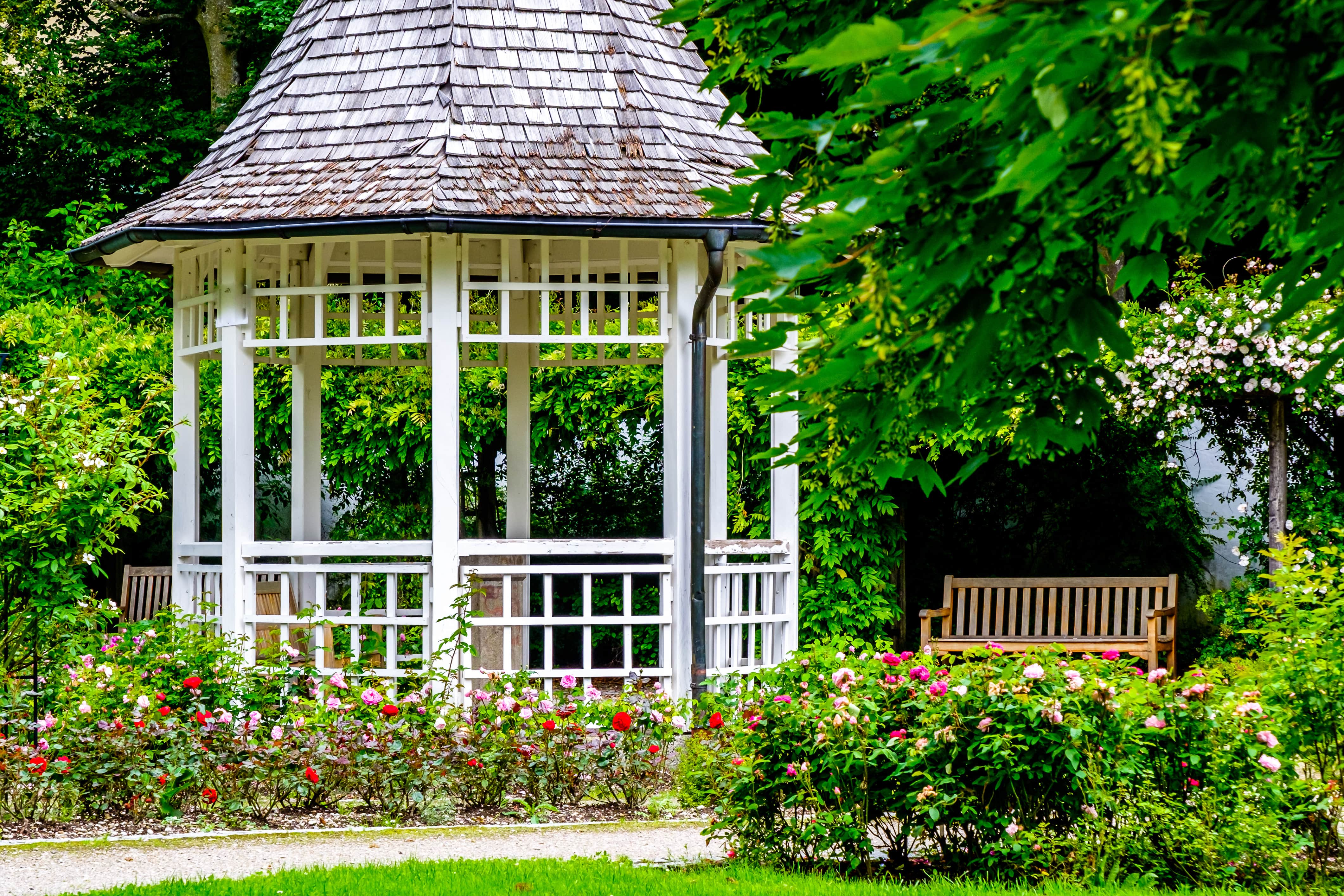
Fully incorporate a gazebo into the garden area by planting flowers and greenery leading up to the structure. This simple upgrade can make you feel like you’re moseying through your favorite impressionist painting as you go from place to place throughout your yard.

When choosing plants for your gazebo area, consider tall climbing plants to use up vertical space and draw the focus upwards. Sunflowers, roses, or wisterias are all great options that you can admire both up close and from afar.

Another creative way to integrate flowers and greenery into your gazebo is to also let it serve as a greenhouse by installing shelving along the frame. This upgrade adds ample space to store herbs, flowers, and vegetables, and the open air environment provides just enough sunlight and shelter to help your plants thrive.

Put the finishing touches on your gazebo by hanging flower baskets from the beams or the rails. These dark gray wicker containers are a trendy option and provide a visual point of interest in an otherwise empty space. Plant begonias, pansies, or impatiens so you can engage all five senses while you’re sipping your morning brew and smelling the fragrant flowers.

A metal gazebo adds charm and an old-world look to a garden area. Over time, however, metal can look worn and require some TLC. Paint over an outdated metal structure to give it a makeover that you can enjoy for years to come.
After installing a gazebo, you’ll want to find ways to use it year-round, and from sun up to sun down. Remember, one of the major benefits to a gazebo compared to a pergola is the ability to run electrical wiring to it because it has a solid frame. Here are a few different ways to incorporate lighting into your gazebo.
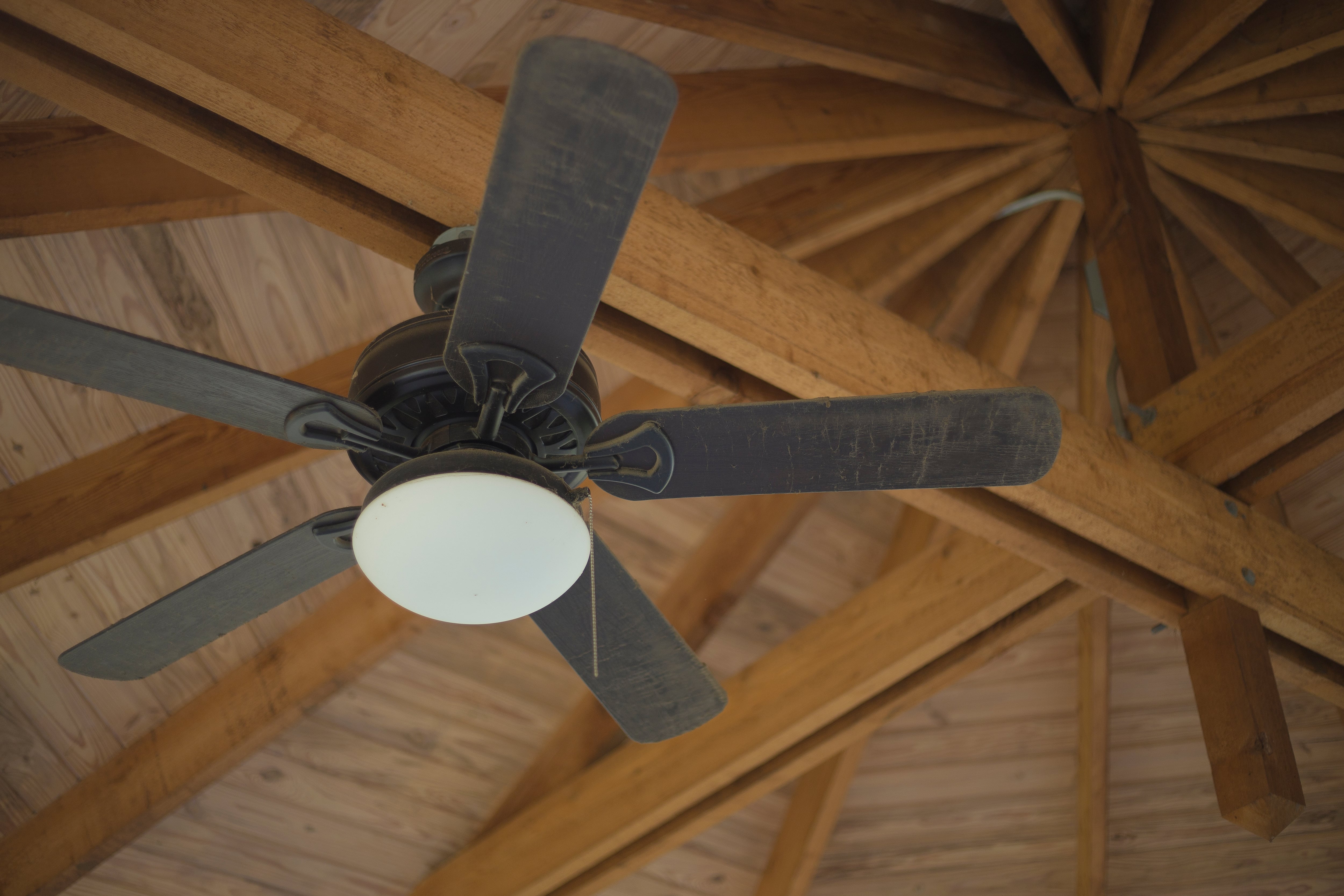
Hang a fan inside your gazebo to create more breeze for humid summer nights. Opt for a unit with a light to provide more visibility after the sun sets.
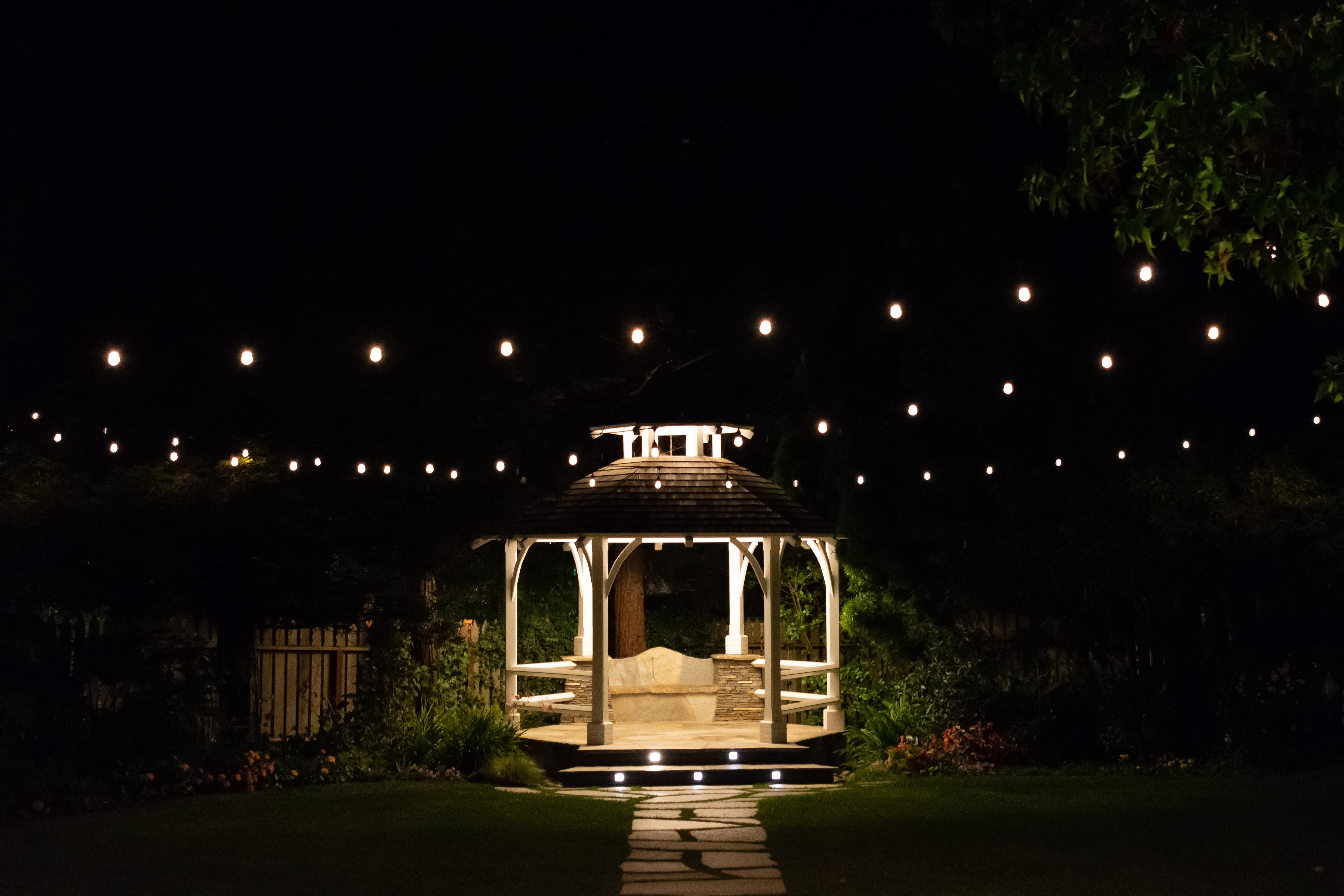
Find soft sources of light to add to your gazebo design. Hanging string lighting from DIY planter posts can illuminate the surrounding area, and adding LED lights lining the stairs can create a dreamy atmosphere to take your outdoor gathering from day to night.
If you're looking for a gazebo lighting idea to take the atmosphere to the next level, consider installing smart light bulbs or smart LED strip lighting. You’ll be able to change the lights to a variety of vibrant hues and control it all from your smartphone or home assistant.

If your gazebo has a tall pent roof, use up empty vertical space by suspending a hanging light fixture. This wire frame pendant chandelier adds both utility and elegance to make this a usable outdoor room any time of the day.
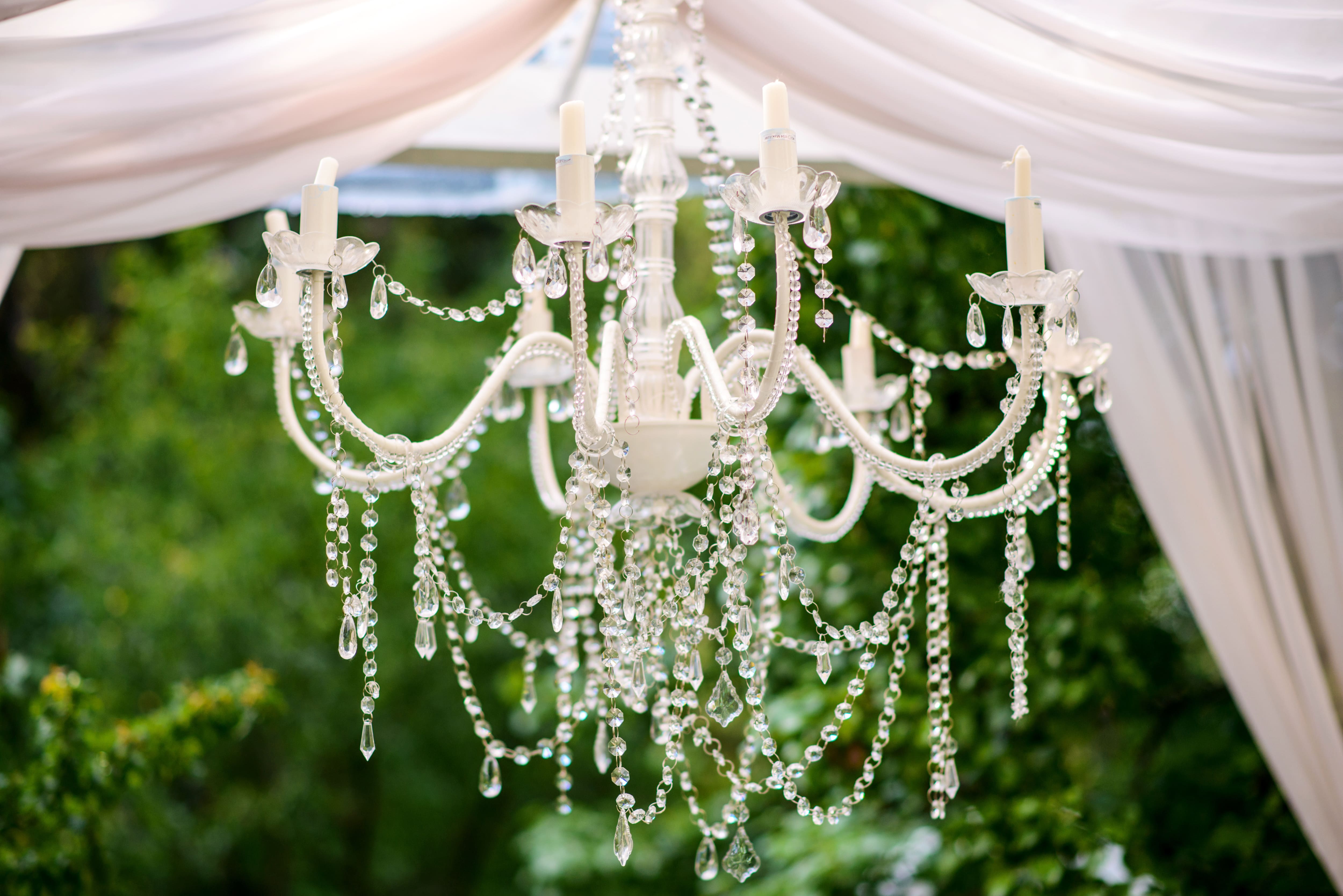
A chandelier adds a level of elegance to any space, and hanging one in your gazebo can amplify the overall look of the structure. This white luxurious light fixture becomes a focal point of the yard, providing an enchanting feeling while you’re immersed in nature.
The type of roof can impact the cost of the gazebo, but the right roof can add form and function to the overall design.

While various materials can be used to create the gazebo’s roof, shingles are one of the more durable options. A shingled roof can last for decades, and many choose this option to match the shingles of their home to provide exterior cohesiveness.
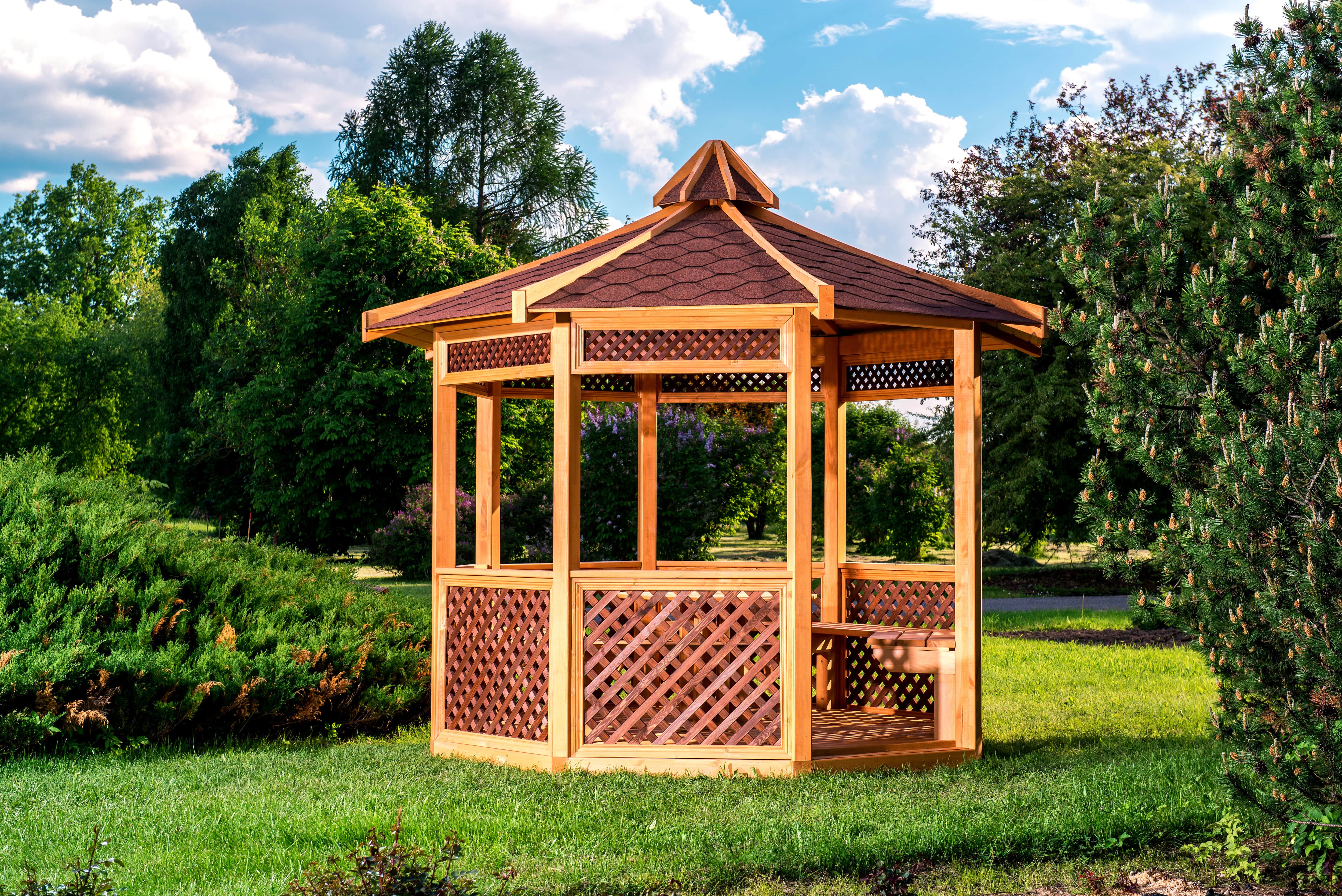
Give your gazebo more depth and dimension by opting for a two-toned color palette. The darker wood lattice work and roofing coordinates well with the light wood frame and seating area to create a chic outdoor structure that elevates the look of the backyard landscaping.

The hipped roof on this structure has a gentle slope that meets at a peak to promote drainage and protect the structure from heavy wind. Aesthetically, the look of the hipped roof brings symmetry to the space and complements the lattice frames.

A tiered roof can upgrade the overall look of the gazebo by adding an architectural focal point to the structure. The cupola—or the hollow frame protruding from the top of the structure—provides a finishing touch to further accentuate this garden gazebo.

A soft-roof gazebo is an option if you’re looking for a less permanent way to add shade to your backyard landscape design. This type of structure still gives you the opportunity to enjoy the open air outdoors, but have a shady overhead cover to protect you from the sun or wind. What’s more, it works well in a small space, as it can be easily taken down if you need more room.
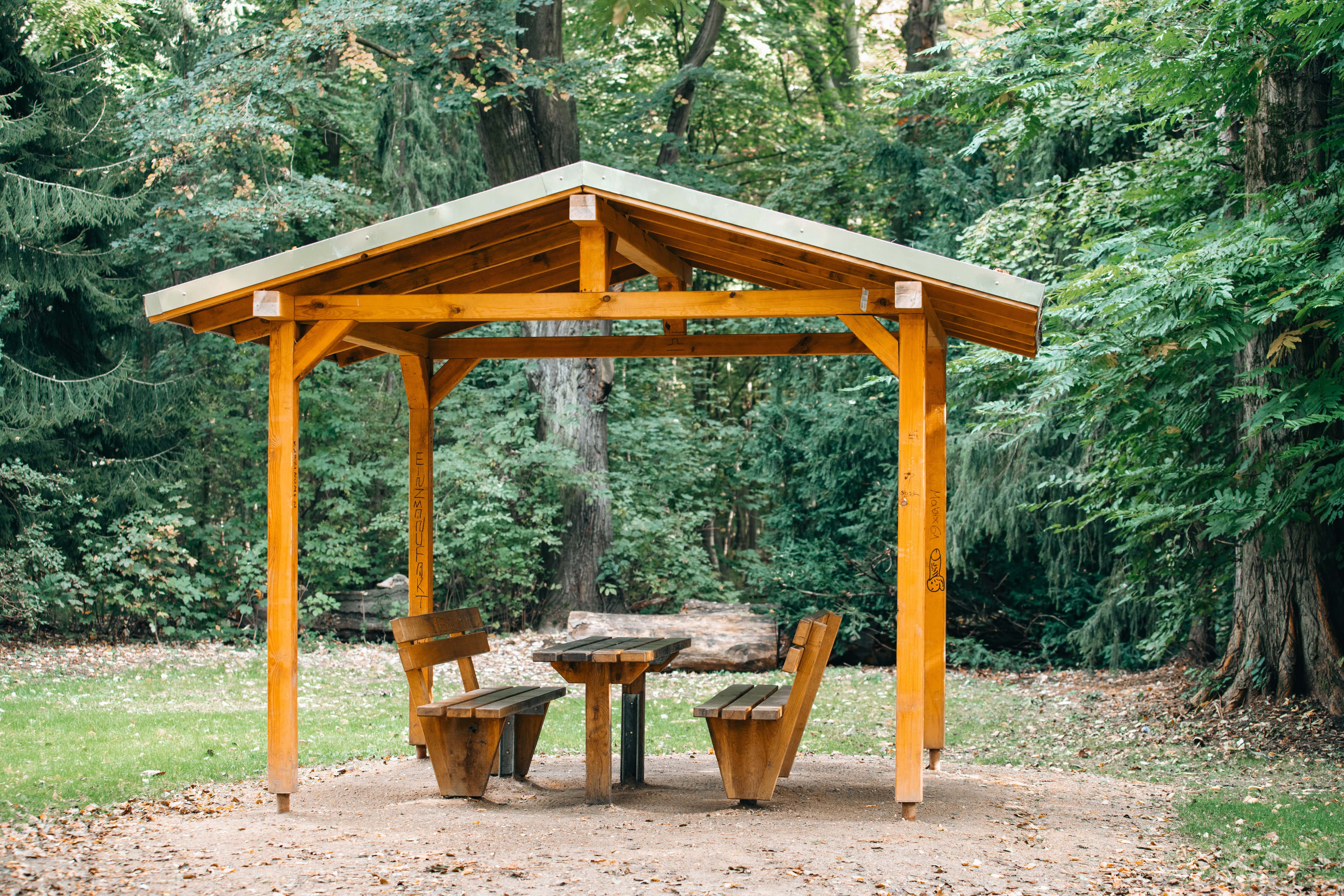
A classic gable roof meets at a peak in the middle, and the high ceilings provide ample airflow, while providing optimal drainage to keep inclement weather away. Set up a picnic table and bench seating underneath to enjoy more time outdoors in any season.
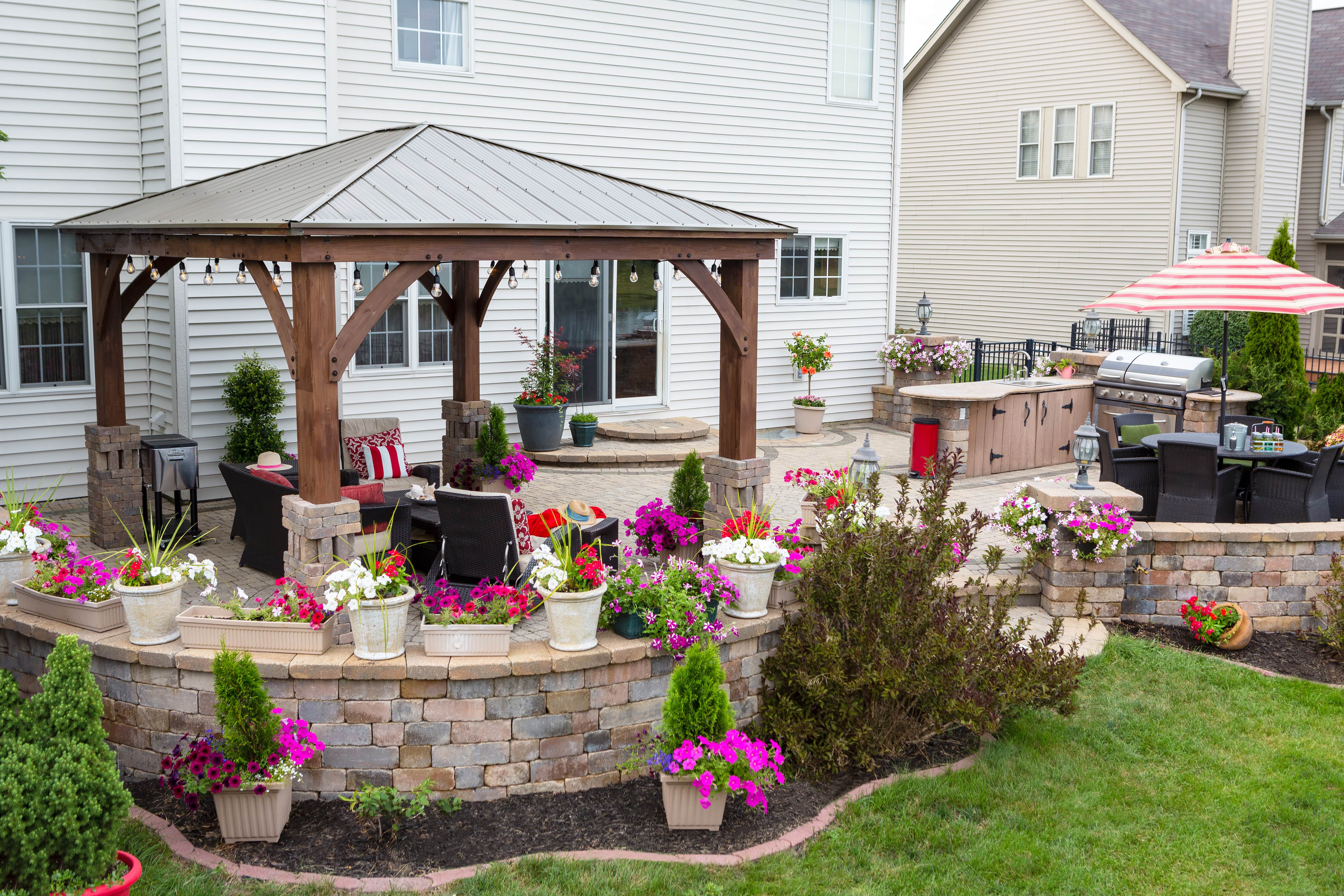
A hard metal roof is another material to consider when choosing a covering for the gazebo. While wood provides a more classic look, many choose metal because it’s durable and low-maintenance. Choose between aluminum, steel, or cast-iron, but keep in mind that steel and cast-iron will need to have an added protective powder coating to ensure the roof doesn’t rust or corrode over time.
Emma Diehl contributed to this piece.
From average costs to expert advice, get all the answers you need to get your job done.

A deck skirt can improve the form and function of a deck. Find out what it could cost to install deck skirting in your backyard with this guide.

Looking to build an outdoor entertainment space? Use this patio cost guide to get an idea of how much your exterior project will come out to.
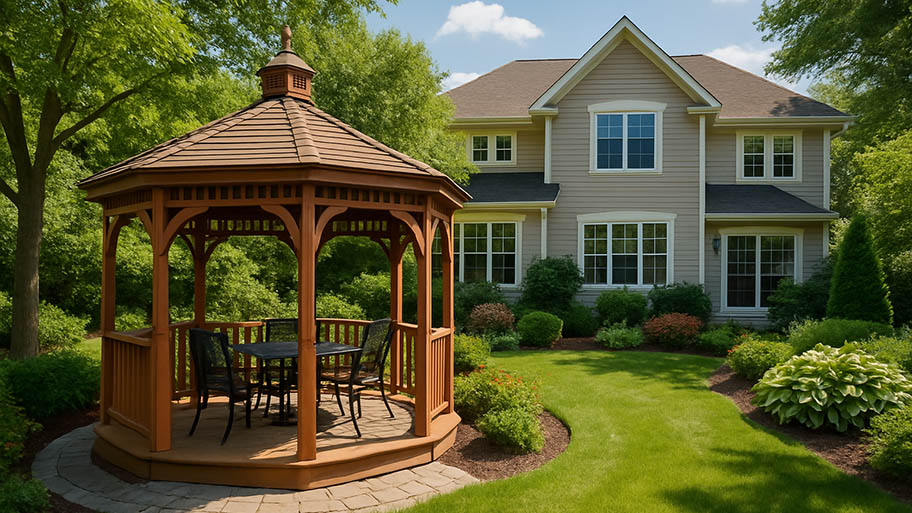
The average gazebo installation cost depends on the size and material. Keep reading to discover how much your gazebo may cost.

Your new deck will be a welcomed outdoor living space. But what is deck flashing, and why do you need it? We discuss this important aspect of deck building.

Using brick or concrete patio pavers can transform your backyard into your own luxury getaway. Browse our paver patio ideas to get your creative juices flowing.

A deck step down is required to make your deck compliant with safety and building codes. Learn more about the minimum step down to a deck.